Garden Ideas with No Mulch: Creative Solutions for a Vibrant Yard
Creating a beautiful garden doesn’t always mean you have to use mulch. There are many creative ways to design a lovely outdoor space without the upkeep that mulch requires. Whether you’re looking for low-maintenance options or simply want to try something different, you’ve come to the right place.
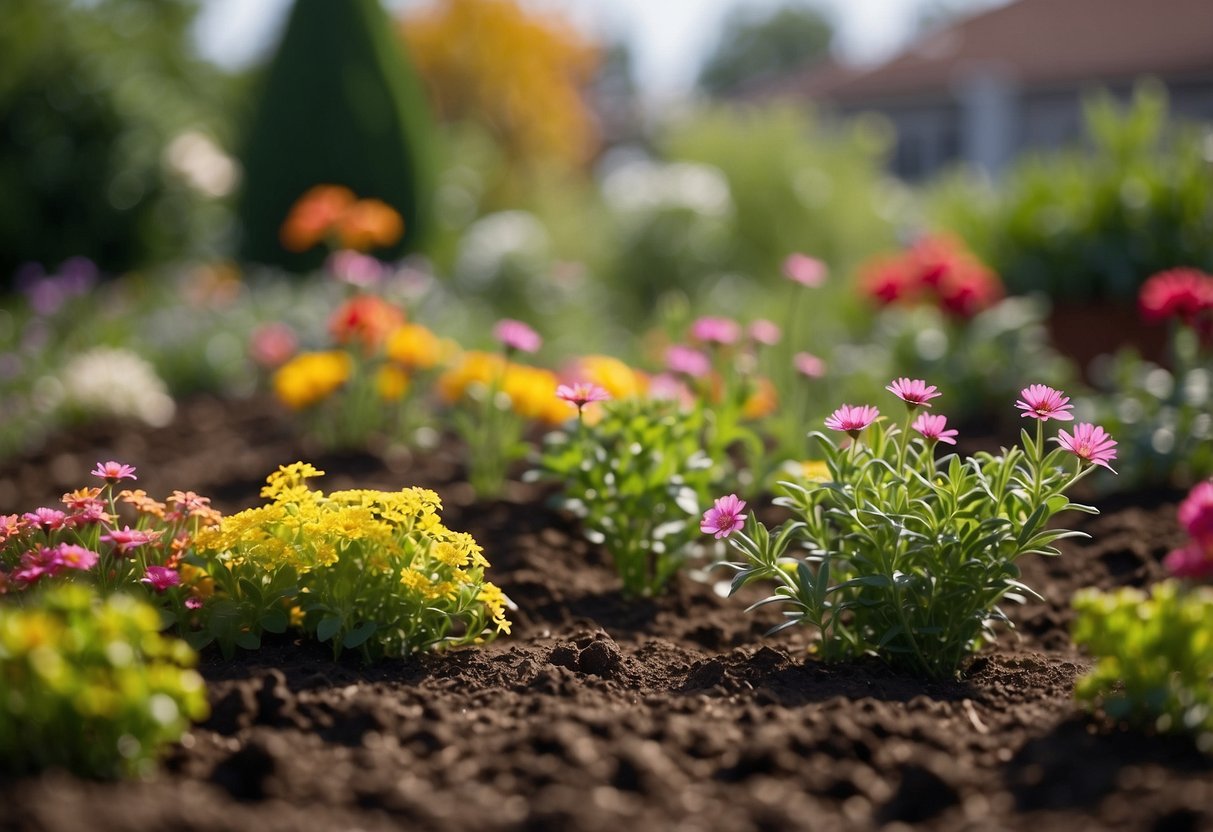
You’ll find plenty of garden ideas that don’t involve mulch but still keep your yard looking vibrant and neat. Using different materials and plants, you can create a stunning landscape that suits your style and needs. Embrace the possibilities and get ready to transform your garden!
1) Rock Gardens

Rock gardens are perfect for a low-maintenance landscape. They add structure and a natural look to your yard. You can use large boulders and smaller rocks to create interesting layers.
Add different plants like succulents, perennials, or small shrubs to bring life to your rock garden. Consider using creeping groundcovers to soften the hard edges of the stones.
Using different sizes and colors of rocks can make the garden more visually appealing. This is especially true if you feature plants like wild tulips and alliums for contrast.
2) Gravel Pathways

Gravel pathways are a great choice for a garden without mulch. They are affordable, easy to install, and very low-maintenance. Plus, they add a charming, rustic look to your garden.
Gravel helps prevent weed growth, especially if you use landscape fabric underneath. This fabric also keeps the gravel from mixing with the soil.
For extra texture, consider using different sizes or colors of gravel. You can use larger stones to edge the path, keeping the smaller gravel contained. This helps maintain a clean look and protects your lawn mower from damage.
3) Groundcover Plants

Using groundcover plants is a great idea if you want to avoid using mulch. These plants can fill in spaces and add color to your garden.
Some good options include bunchberry, which grows well in shady areas. Another choice is bugleweed, known for its vibrant green foliage.
Groundcover plants like these can help reduce weeds and keep your garden looking neat and beautiful without the need for mulch.
4) Garden Statues

Adding garden statues can give your yard character and charm. These statues can range from classic designs to whimsical pieces.
Think about adding a wooden garden obelisk for a simple yet striking look. You could also place a playful tortoise garden statue to bring a touch of nature.
These pieces not only enhance your garden’s beauty but also create focal points that draw the eye.
5) Outdoor Lighting
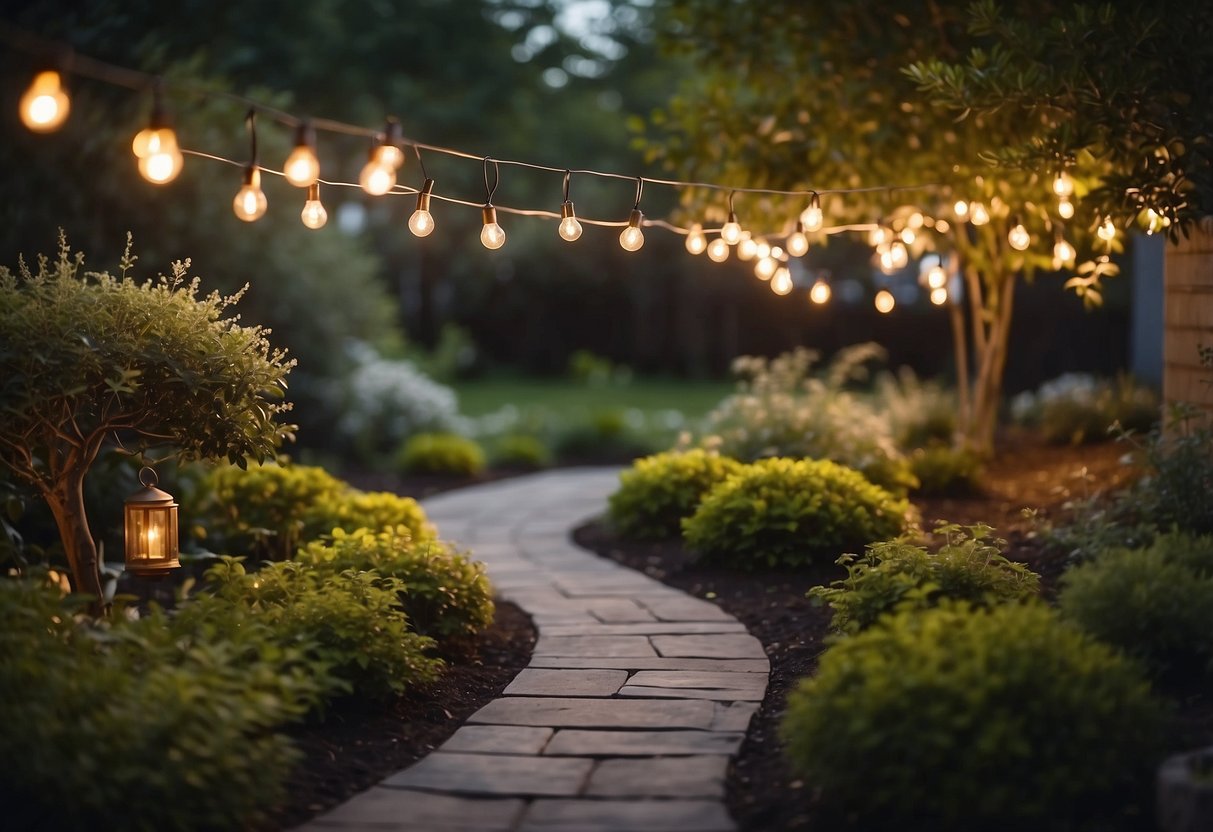
Outdoor lighting can make your garden look amazing at night. Use string lights in trees to create a magical atmosphere. These lights are great for adding a bit of charm and are easy to install.
Consider using solar-powered garden lights to save on energy costs. They’re perfect for pathways and flower beds.
Globe-shaped lights add visual interest. They work well in gravel gardens or near your favorite plants. Enjoy a garden that shines even after the sun goes down.
6) Potted Plants
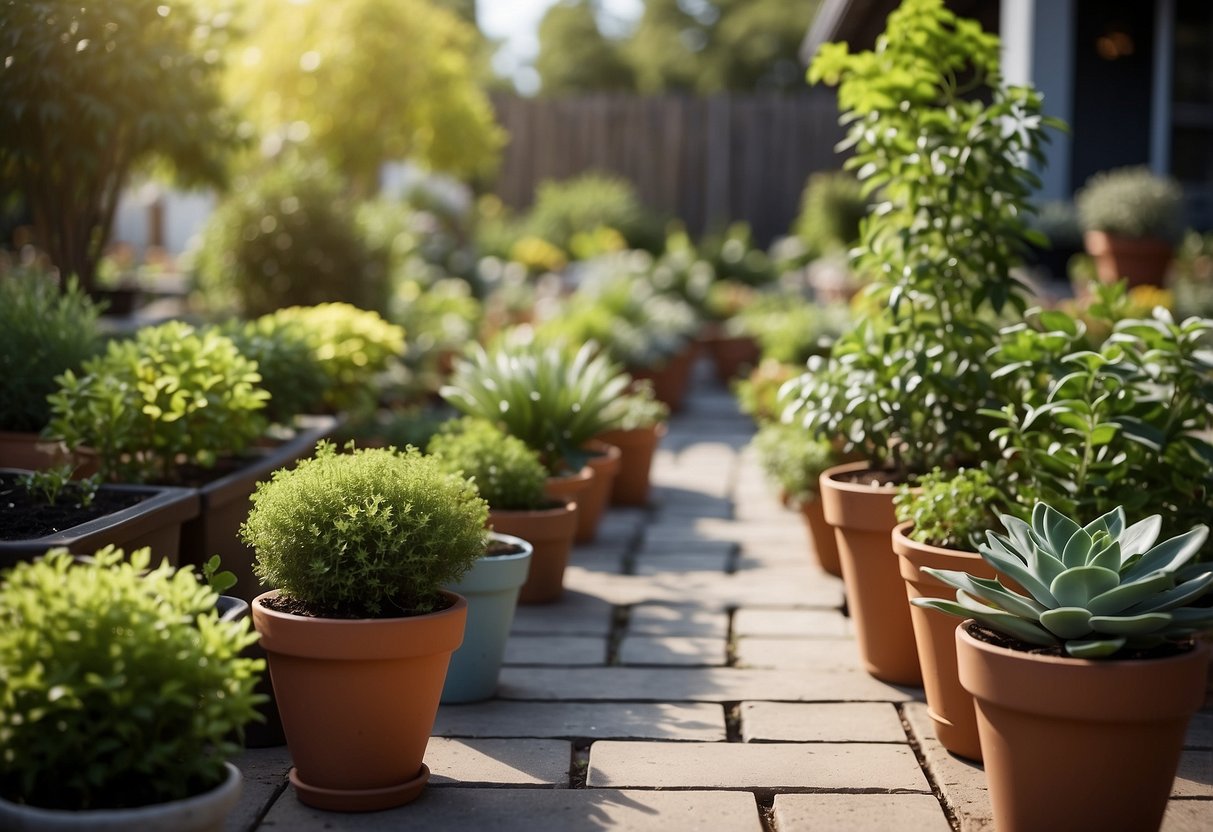
Potted plants are a great way to add greenery without using mulch. You can place them on your patio, deck, or balcony.
Try using colorful pots to add a pop of color to your space. You can grow flowers, herbs, or even small trees in these pots.
Some ideas include banana trees, palm trees, and elephant ears in large, lush containers.
7) Water Features
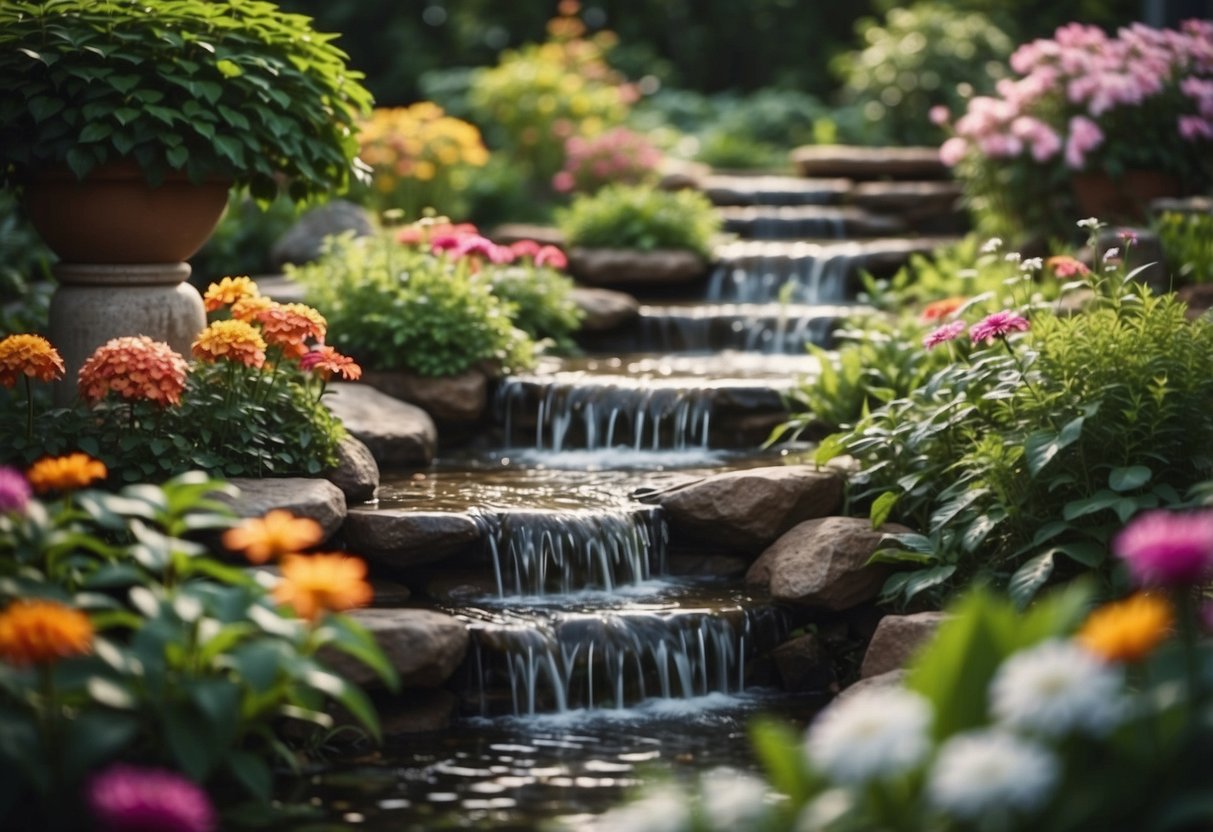
Water features can bring tranquility to your garden. A modern garden pool can add a sleek touch. The sound of water is calming.
Consider a Japanese fountain for a unique touch. It can help keep pests away. A small pond can be home to fish or plants.
8) Vertical Gardens
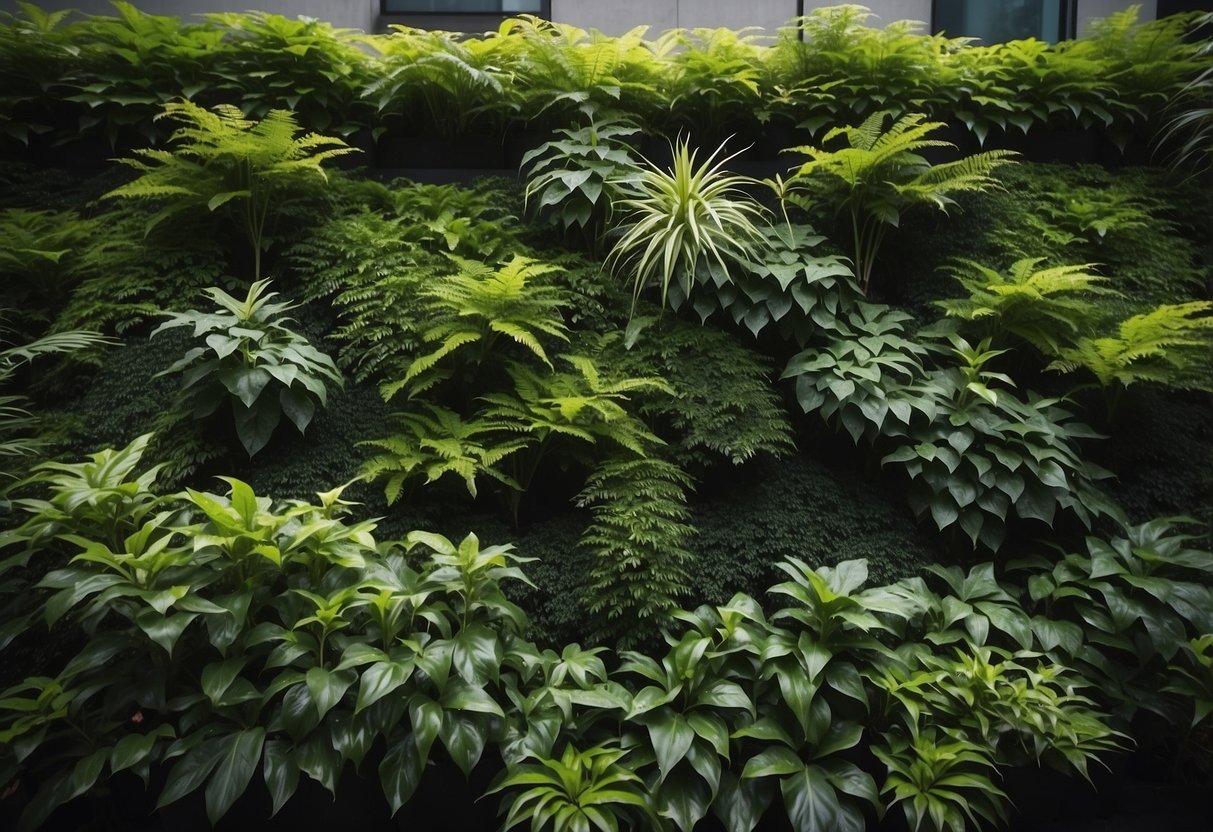
Vertical gardens save space and add creativity to your gardening. You can use items like wooden pallets, trellises, or wire mesh panels to place your plants vertically.
Try making a strawberry tower garden using materials you already have at home. It’s perfect for growing trailing plants.
For a unique touch, consider vertical bottle planters. Just cut out the front part of the bottle, fill it with soil, and hang it with rope.
9) Decorative Stones
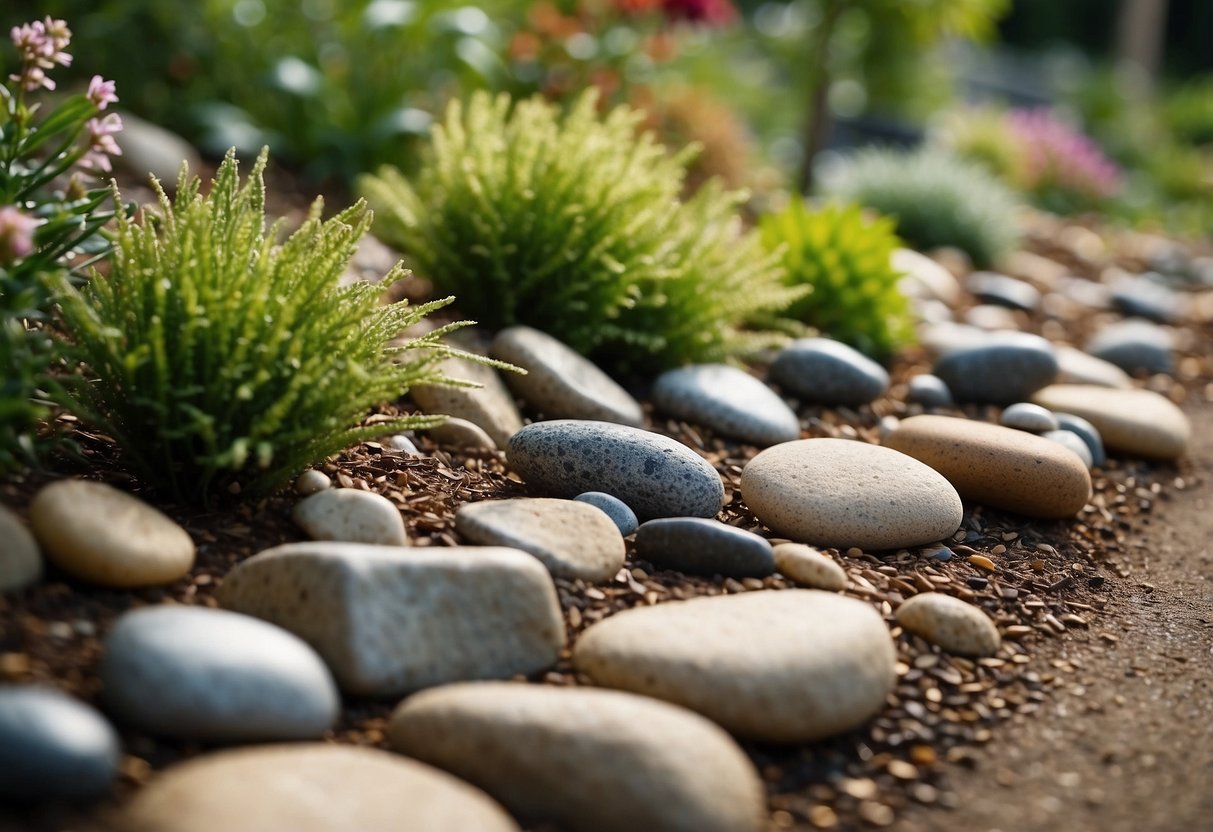
You can easily replace mulch with decorative stones in your garden.
Using stones adds a clean and neat look. They come in various colors and sizes, letting you create the perfect design.
Stones help keep soil in place and reduce weed growth. They also offer good drainage, making them practical and pretty.
For more ideas, check out these rock garden designs.
10) Garden Furniture
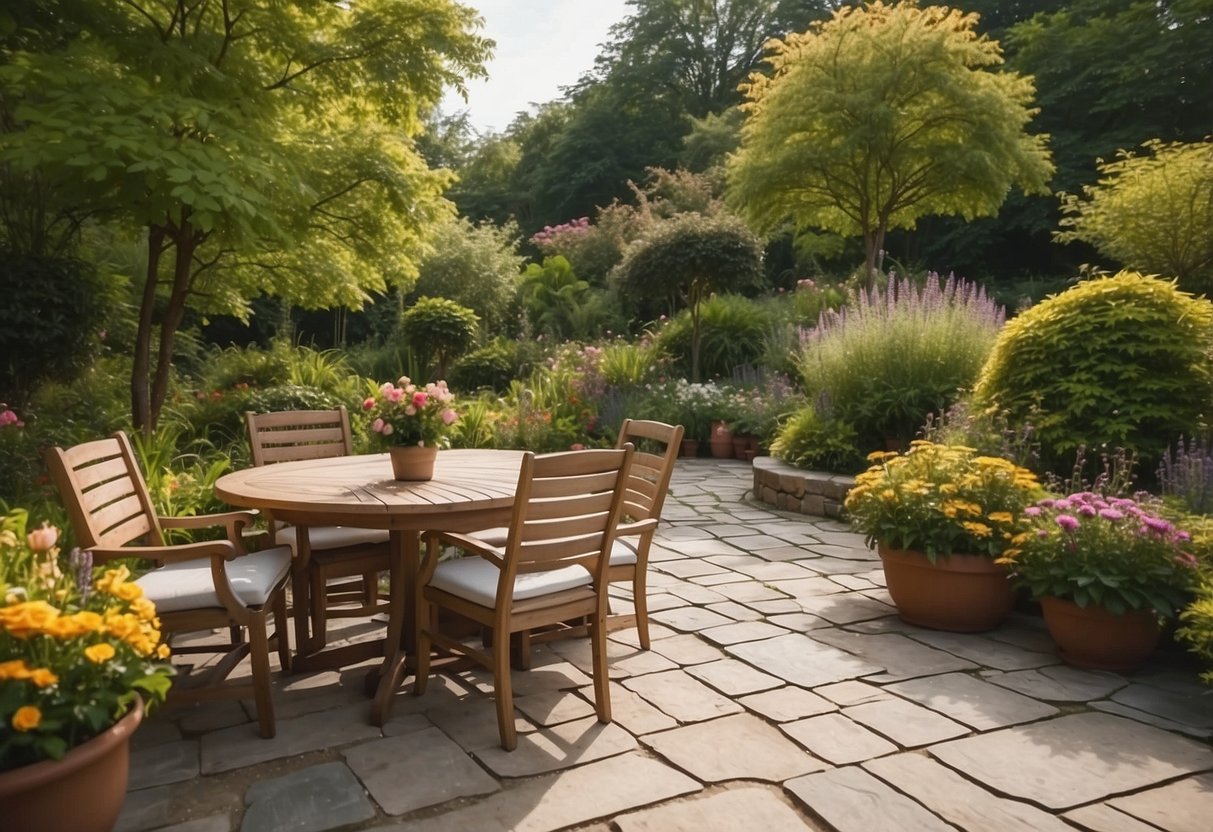
Adding garden furniture turns your outdoor space into a cozy spot to relax.
Consider a set of weather-resistant chairs and a sturdy table.
For a more casual look, you might like hammocks or benches.
Think about adding a few cushions and a throw blanket to make it even more inviting.
Select furniture made of materials like teak or metal for durability.
Benefits of a No-Mulch Garden
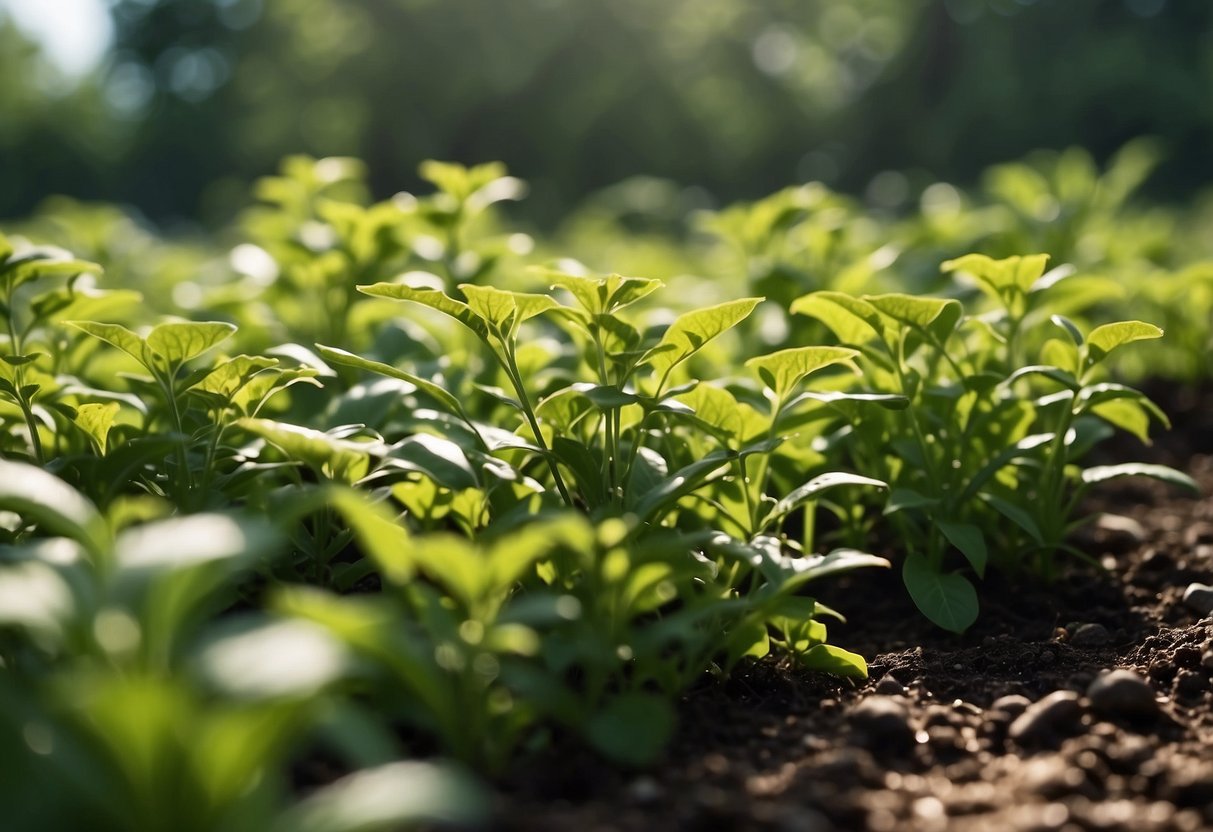
Choosing a no-mulch garden offers multiple benefits, such as reducing your garden chores and promoting better soil conditions. It also helps save money on garden upkeep.
Reduced Maintenance
In a no-mulch garden, you don’t have to replace mulch every season. Perennials and ground cover plants reduce the need for weeding since they grow back each year and cover bare soil. Unlike mulch, which can blow away or break down over time, these plants provide lasting benefits with minimal care.
Ground cover plants, like clover or creeping thyme, help suppress weeds. They grow thick, creating a barrier that weeds can’t easily penetrate. This reduces your need for constant weeding and adds a green, lush look to your garden.
You also save time on watering. Plants that act as natural mulch hold moisture in the soil better than regular mulch, so you don’t need to water as often.
Improved Soil Health
Skipping mulch can enhance your soil’s health. Traditional mulches can suffocate beneficial microorganisms and prevent air and water from reaching the soil. By using ground cover plants or compost instead, you let your soil breathe and thrive.
Compost, in particular, adds essential nutrients back into the soil. It is full of organic material that feeds your plants and improves soil structure. Unlike rubber mulch, which offers no nutritional value, compost supports healthy plant growth by enriching the soil.
Nitrogen-fixing plants like clover also improve soil fertility. These plants convert atmospheric nitrogen into a form that plants can use, naturally boosting soil health without added fertilizers.
Cost-Effectiveness
A no-mulch garden can save you money. You won’t need to buy bags of mulch every season. Many alternatives, like compost, can be made at home from kitchen scraps and garden waste, making it a nearly free option.
Perennial plants, once established, come back year after year. This means you spend less on new plants each season. Even ground cover plants require little investment after their initial planting.
Rubber mulch might have a premium upfront cost compared to traditional mulch, but plants like perennials and compost are budget-friendly over time. You’ll save on both materials and maintenance, keeping your garden beautiful and cost-efficient.
Top Alternatives to Mulch
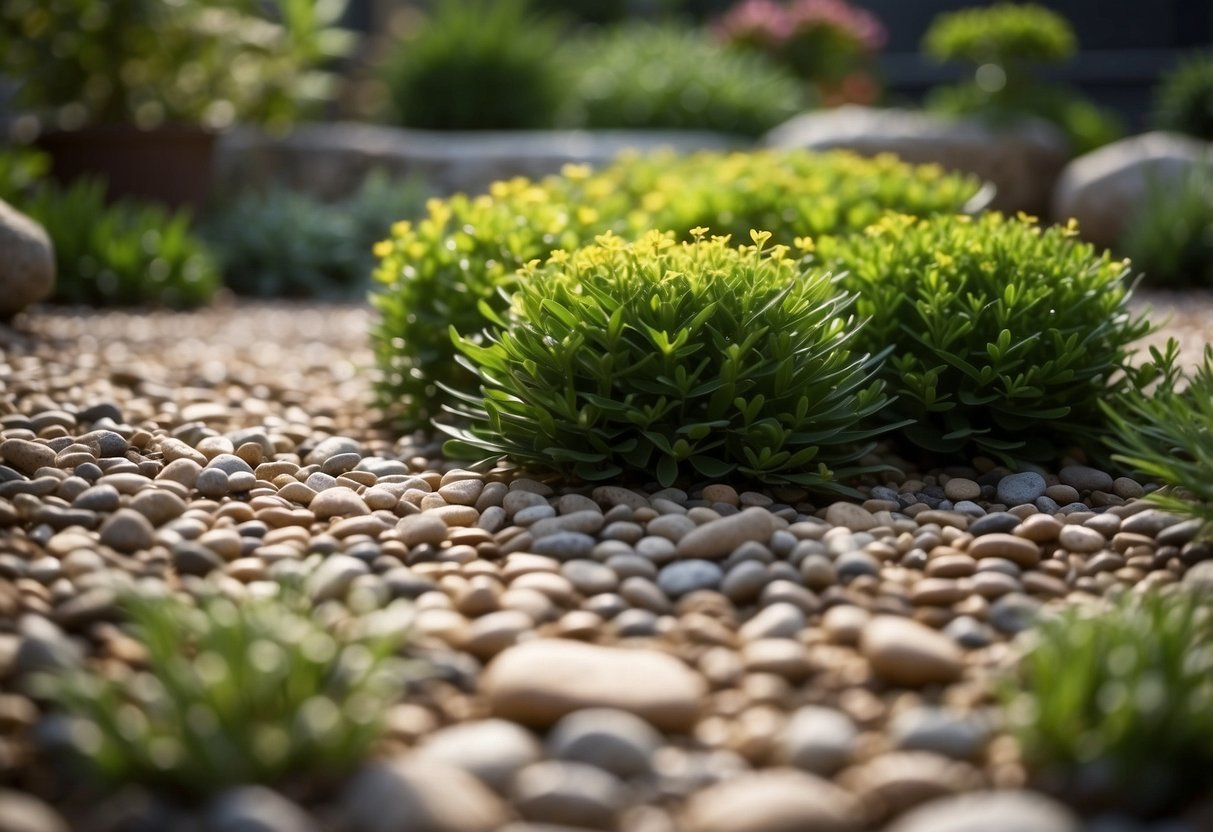
Using alternatives to mulch can save time, reduce maintenance, and even enhance garden health. Here are some great options for you to consider:
Ground Covers
Ground-covering plants are an excellent way to keep weeds down and preserve moisture in your garden. Options like daylilies, hostas, and creeping thyme not only add beauty but also serve practical purposes.
Daylilies are hardy and come back every year. They need little maintenance and provide lovely colors.
Hostas are perfect for shaded areas. They spread out and cover ground well, reducing the need for weeding.
Creeping thyme is ideal for sunny spots. Its low-growing habit makes it great for filling spaces between stones or along pathways.
These plants can create a lush, green alternative to traditional mulch and help support the ecosystem in your garden.
Compost and Organic Matter
Compost is a fantastic mulch alternative that adds nutrients to your soil as it breaks down. You can make compost at home using kitchen scraps, leaves, and other organic materials. This process not only reduces waste but also improves soil health.
Use a thin layer of compost around your plants, being careful not to pile it up against the stems. This helps prevent diseases and promotes healthy growth.
Organic matter such as straw, grass clippings, and leaves can also be effective. Straw is lightweight and breaks down slowly, providing long-term benefits.
Grass clippings are another easy option. They decompose quickly and add nitrogen to the soil, which is vital for plant growth.
For a more stable option, consider finely shredded leaves. They decompose slowly, providing a consistent source of nutrients and improving soil structure. Just make sure to avoid using leaves treated with chemicals.
How to Maintain a No-Mulch Garden
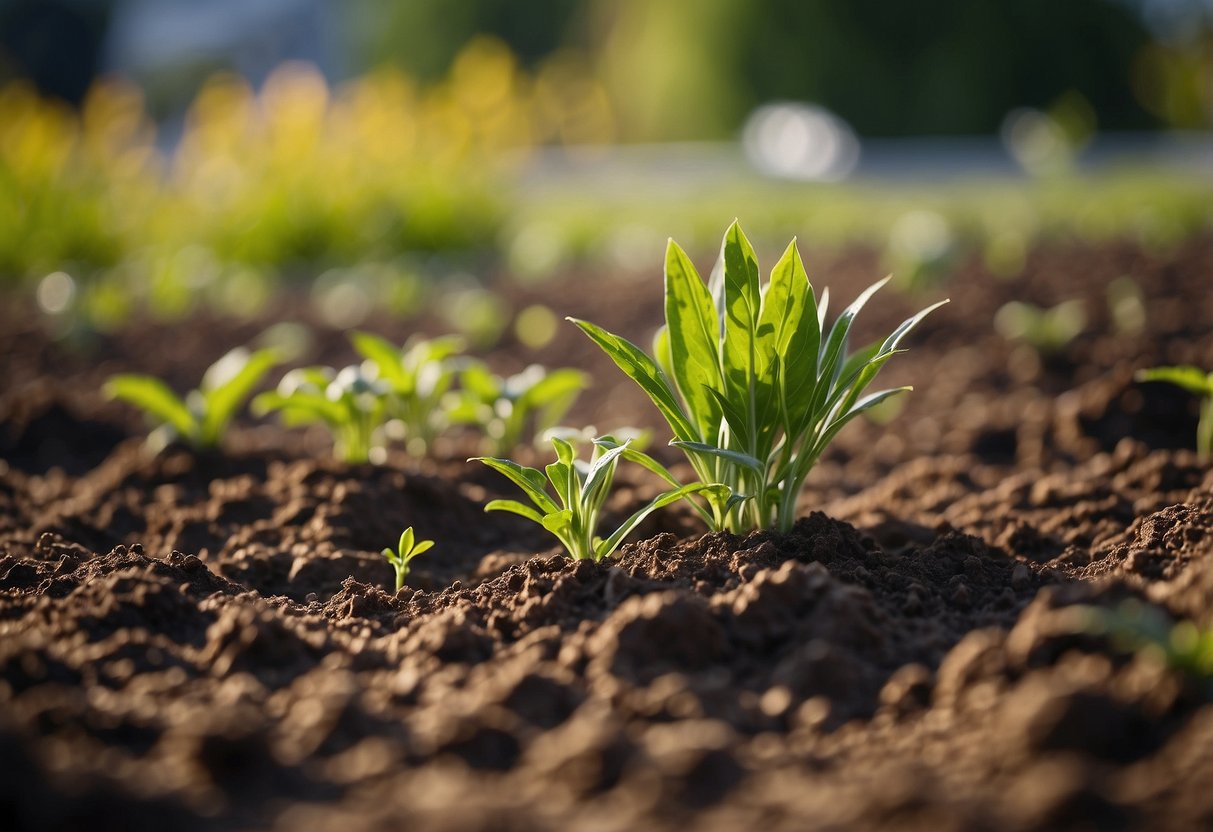
Maintaining a garden without mulch involves specific watering techniques and effective weed control strategies. These methods ensure your plants stay healthy while minimizing your garden’s upkeep.
Watering Techniques
In a no-mulch garden, proper watering is key to keeping your plants healthy. Drip irrigation systems can be very effective. They deliver water directly to the roots, reducing evaporation and ensuring efficient use of water.
Watering early in the morning is also beneficial. It allows plants to absorb water before the heat of the day, reducing the risk of evaporation and helping prevent diseases.
Soaker hoses are another great option. They provide a slow, steady release of water directly to the soil, which helps keep the plants hydrated without overwatering. Make sure to regularly check the soil moisture. The top inch of soil should be dry before you water again to prevent root rot.
Weed Control Strategies
Without mulch, keeping weeds at bay is a bit more challenging, but still manageable. Start by planting densely. This method will crowd out weeds by leaving them little space to grow. Choose ground-cover plants like clover or creeping thyme to fill gaps between your main plants.
Regularly hand-pulling weeds is essential. Make a habit of walking through your garden every few days to pull weeds while they’re small. This prevents them from establishing deep roots and spreading seeds.
Using landscape fabric is another effective method. Place it around your plants and cover it with decorative stones or gravel. This not only looks good but also prevents weeds from taking root. Additionally, applying a vinegar-based solution can help control weeds naturally. Be careful to target only the undesired plants, as vinegar can affect all vegetation.







